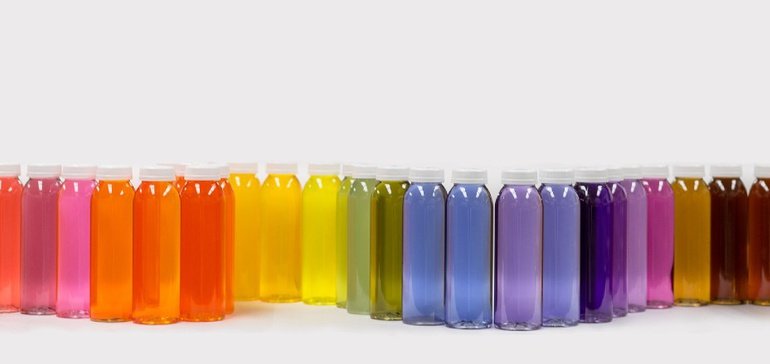Givaudan bulks up natural colors business with purchase of DDW

Dive Brief:
- Ingredients manufacturer Givaudan is acquiring DDW, The Color House, a privately-held U.S. natural colors business with 12 manufacturing facilities around the world. Exact terms of the deal, which is expected to close in the fourth quarter, were not disclosed.
- DDW, founded in 1865, holds a strong position in the food and beverage industry thanks to its expertise in caramel and natural colors, according to the release. The company would have generated about $140 million in incremental sales for Givaudan in 2020.
- Natural colorings have grown in popularity amid a broader surge throughout the CPG space for better-for-you offerings. Zion Market Research estimates the natural food color market could reach an estimated $3 billion globally by 2028.
Dive Insight:
The acquisition of DDW is the latest step in Givaudan’s journey to become a global leader in natural colors, Louie D’Amico, the company’s president of taste and wellbeing, said in the release.
As consumer interest in colors without chemicals has increased, Givaudan has bulked up its presence in the space through a series of deals. Givaudan purchased Naturex in 2018, adding to the mix its expertise in plant extracts and natural ingredients. A year earlier, the Switzerland-based company purchased Activ International to gain access to its work in natural and organic meat, poultry, seafood, vegetable and vegetarian flavors and extracts, specialty grill flavors, as well as natural colors.
The expansion of its natural colorings business is in line with Givaudan’s 2025 strategy to grow its portfolio to “create food experiences that do good and feel good, for body, mind and planet.”
For many consumers, doing good for their body means switching to natural colors which allows for products to sport clean labels. Roughly two-thirds of consumers say they try to choose foods made with clean ingredients, according to research from the International Food Information Council (IFIC). The same amount said ingredients have at least a moderate influence on their food and beverage purchases.
Natural colors are also a central ingredient in plant-based formulations. Previous research found 90% of shoppers make up their minds about buying a product from its color and perceived taste. The increasing importance of optics in influencing a person’s buying decisions, and in some cases giving up or cutting back on meat for plant-based alternatives, means having the right shade to make the product as similar to the animal-based offering as possible.
It’s increasingly important for ingredient makers such as Givaudan to have a wide portfolio of options in order to meet multiple needs, making them a go-to destination for CPGs. Givaudan’s purchase of DDW will play a big role in strengthening its existing portfolio.
While natural colors are key for on-trend food items, they also are crucial to the development of many beverages — a growing category for Givaudan North America. During the last nine months, sales in the U.S. increased by 5%, bolstered by growth in the company’s beverages and savory segments.
If Givaudan can leverage this acquisition to create options that satisfy the technical requirements for colors as well as the demand for cleaner labels, it could prove to be a shrewd deal. Many companies that formerly committed to removing synthetic colors from their formulations let those pledges lapse or have had to delay them.
The reasons for missing these pledges varied. Companies said they believed consumers didn’t want artificial colors in their products even though subsequent research proved otherwise. Natural colors didn’t perform the same as their artificial counterparts. Consumers were also unwilling to buy formerly vibrant products with the duller natural colors.
However, manufacturers are still interested in using natural colors, and they are focusing on including natural alternatives for new products coming onto the market. Givaudan, with its global reach and reputation, has a chance to grab the attention of these manufacturers by creating natural solutions that deliver the vibrant red, green, purple and black hues that pop onto consumers’ radars when selecting what to purchase.
Source: fooddive.com

